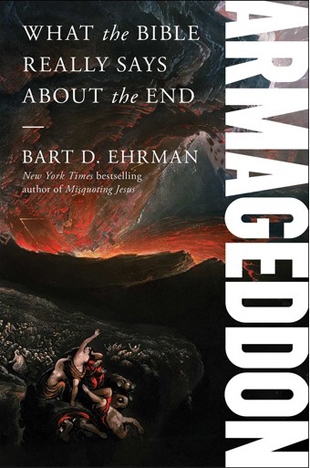Ehrman is a New York Times best-selling author of several books. This one will not disappoint, if you have read any of the others. He writes with real pacing and verve, setting out to deconstruct inaccurate and harmful beliefs and teachings often found in evangelical Christianity.
All the violence of those teachings on the “end times,” as well as the “ideology of dominance,” and “longing for vengeance,” are scrutinized by Ehrman, who long ago attended evangelical schools, but then went on to reject the divisiveness and anger that separates people into categories such as saved and unsaved and that predicts a violent “Apocalypse” to conclude human affairs on Earth.
After beginning to dismantle the old view, in chapter 5 Erhman writes “How to Read the Book of Revelation,” meaning, how to read it right today. He moves step-by-step through the texts and arguments to show how riddled they are with assumptions, prejudices, and holes.
In the end, he questions why these texts (primarily the New Testament book of “Revelation,” and portions of the late Hebrew prophetic book “Daniel,” which is almost completely unread in Jewish contexts) are thought to fit with “the message of love and mercy found elsewhere in the New Testament.”
This is a book about faith, hope, mercy, and peace.
The final paragraph by Ehrman summarizes his position well: “For those of us who choose to follow Jesus — whatever religious tradition we call our own — our understanding of Jesus will almost certainly affect how we model our lives. Is he the loving, peaceful Jesus found in the Gospels, ever attentive to the needs of others? Or is he the wrathful, vengeful Jesus of the Apocalypse, who seeks to hurt and destroy everyone outside his band? Each of us has to decide.”
